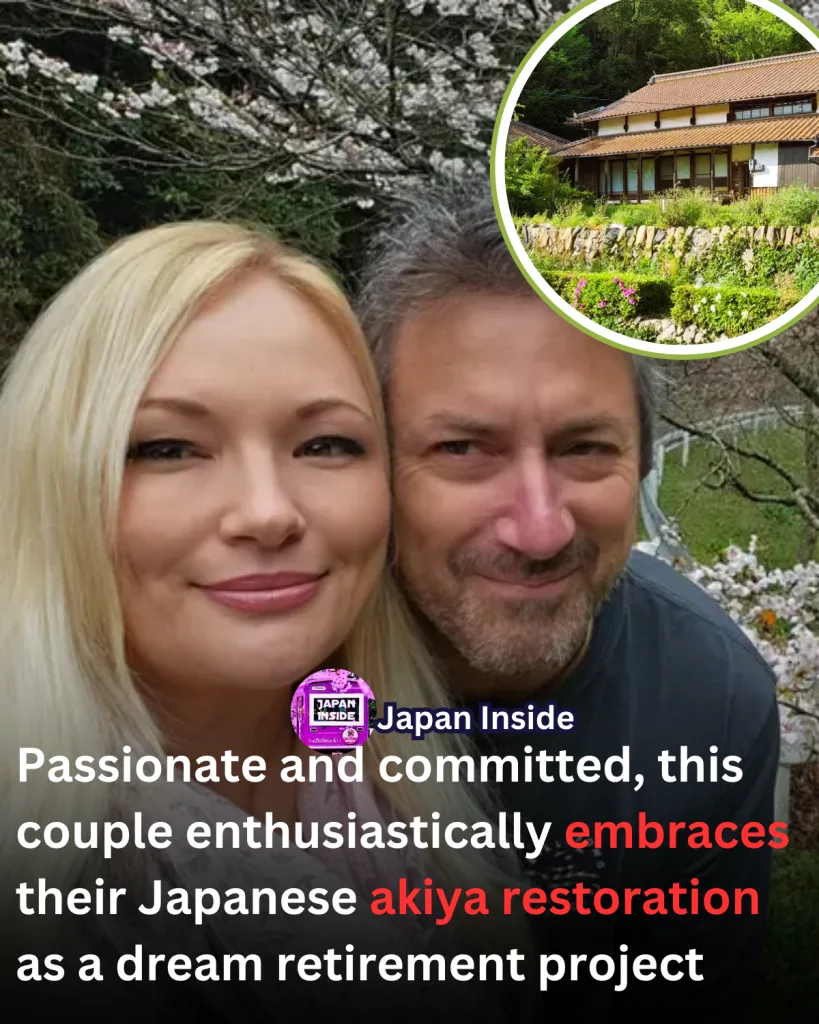From Dream to Reality: How an Australian Couple Found Their Perfect Retirement Project in Rural Japan
In an era where many dream of international retirement but face skyrocketing property prices, one Australian couple found their solution in an unexpected place: a 155-year-old abandoned house in rural Japan.
Deborah and Jason Brawn’s journey from Brisbane to their $23,000 akiya (abandoned house) in Mitocho offers valuable lessons for anyone considering a similar path.

A Love Story with Japan
The seeds of this adventure were planted decades ago when Deborah studied Japanese in university during the ’90s. After graduation, she spent five years teaching English in Tokyo and maintained her connection to Japanese culture through three decades of karate practice. Her passion gradually influenced her husband Jason, and together they developed a deep appreciation for Japanese lifestyle and traditions.
The Perfect Timing
With their four children grown and their youngest turning 18, the Brawns found themselves at a crucial life junction. The pandemic had introduced them to the concept of akiya – abandoned houses in rural Japan available at surprisingly affordable prices. This coincided perfectly with their emerging retirement plans, offering them not just a property investment but a meaningful project to transition into their next life chapter.
Finding Their Perfect Akiya
After extensive online research during Japan’s border closure, the couple finally visited in person in 2023. Their perfect match awaited in Mitocho, near Masuda city – a traditional Japanese house built in 1868 with a fascinating history as a former sake brewery. At 3.5 million yen (approximately $23,000), they acquired a spacious 7LDK property (seven bedrooms plus living, dining, and kitchen areas).
Retirement Home
They intend to split their time between Australia and Japan, slowly working on bringing the house back to its former glory while incorporating some modern touches, until they can fully retire in about five to eight years. Unlike many foreign akiya buyers, they have no plans to monetize the property through Airbnb or other rental arrangements – instead, they’re treating it purely as a personal retirement project and a way to pursue their passion for Japanese culture.
A Practical Guide to Buying an Abandoned House
Based on the Brawns’ successful akiya purchase in rural Japan, here’s what you need to know to follow their path:
Before You Start
- Learn Japanese – at least one partner must speak it well enough for paperwork and community interaction
- Join akiya Facebook groups and research listings extensively before visiting
- Have a steady income source – the Brawns kept their Australian jobs while renovating
- Budget beyond the purchase price – while they paid $23,000, renovation costs are substantial
Location Selection
- Look for properties within 2-3 hours of major cities (theirs is 2 hours from Hiroshima)
- Ensure basic amenities are nearby (they have a 7-11 across their rice field)
- Check the village size (their community has 300 houses)
- Verify property vacancy duration (theirs was empty 12 years)
Required Documentation
- Prepare detailed personal information in Japanese
- Employment records
- Family details
- Specific property renovation plans
- Financial capacity proof
- Written commitment to community involvement
Property Management
- Install security cameras for remote monitoring
- Build relationships with local real estate agents for property checks
- Plan regular visits from your home country
- Prepare for wildlife management (they deal with snakes, bears, hornets)
Community Integration (Critical)
- Join the neighborhood association immediately
- Participate in local events (like their river cleaning project)
- Start exterior renovations first to show commitment
- Attend community functions regularly
Timeline Planning
- Plan for 5-8 years of gradual renovation
- Begin with essential updates (they prioritized kitchen and bathroom)
- Schedule regular visits during key renovation phases
- Balance renovation work with community participation
The key takeaway from the Brawns’ experience: success depends more on community integration and long-term commitment than on the initial purchase price.
Source: Business Insider